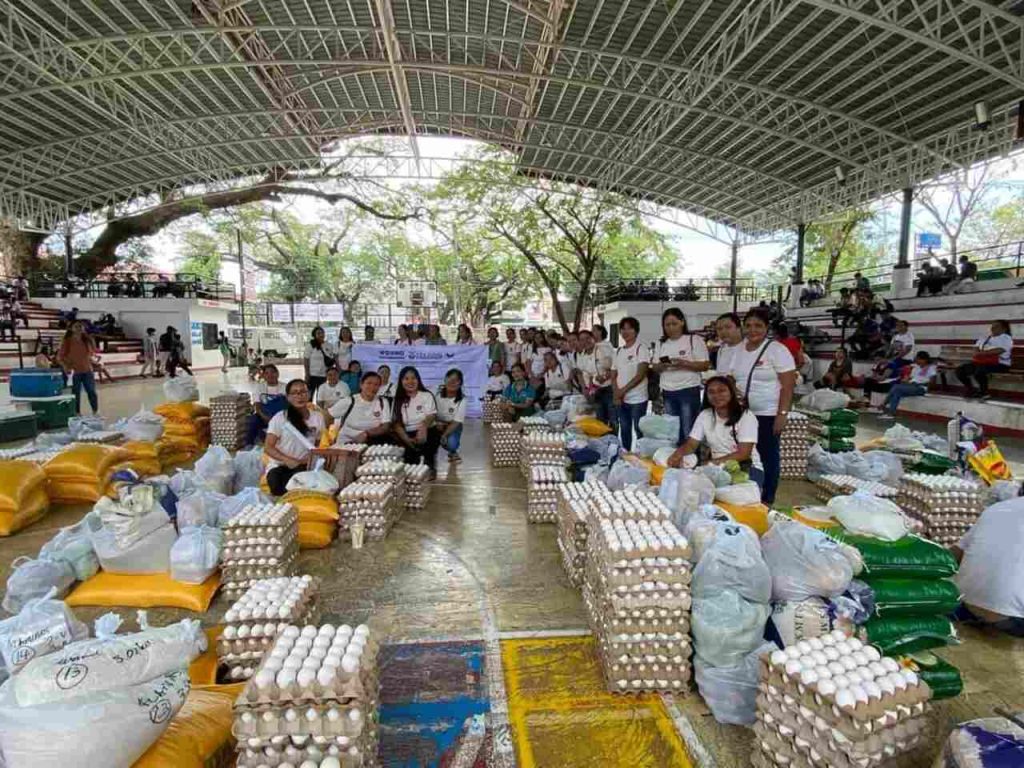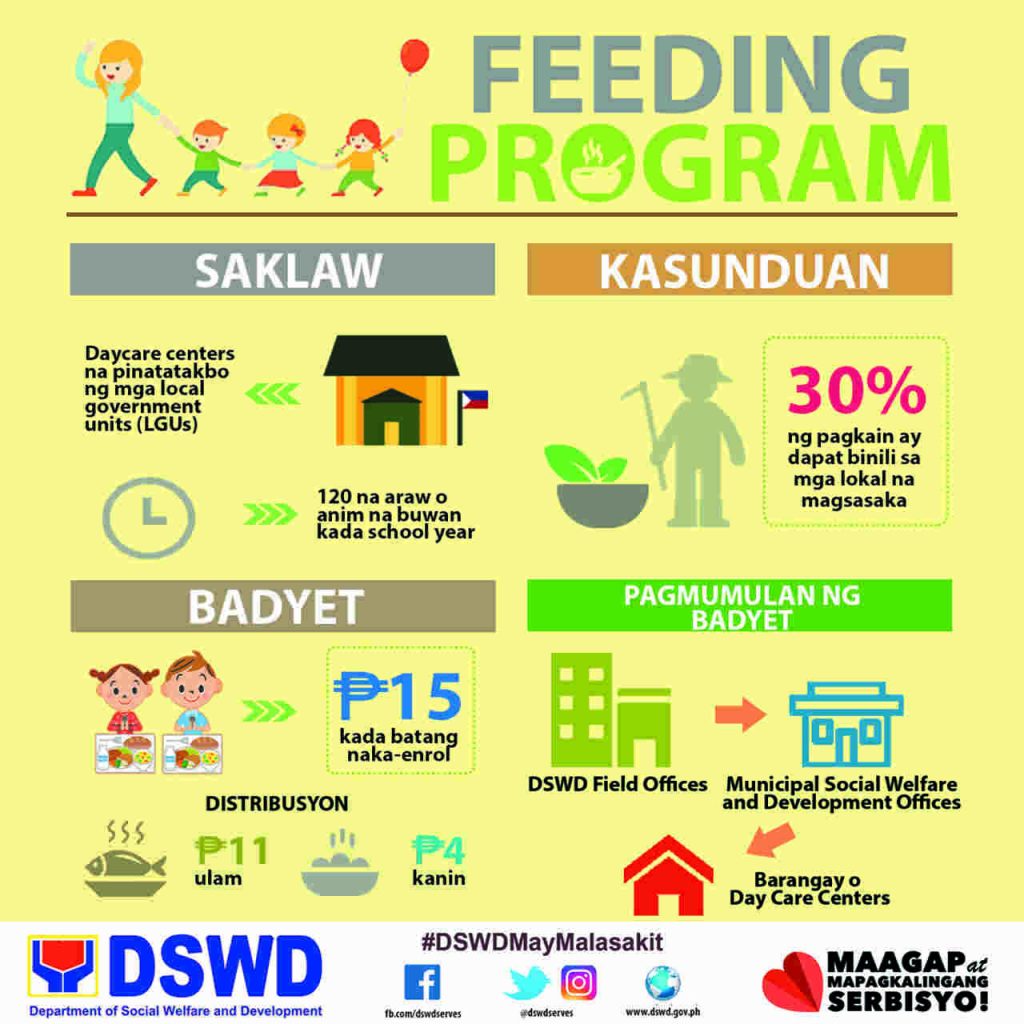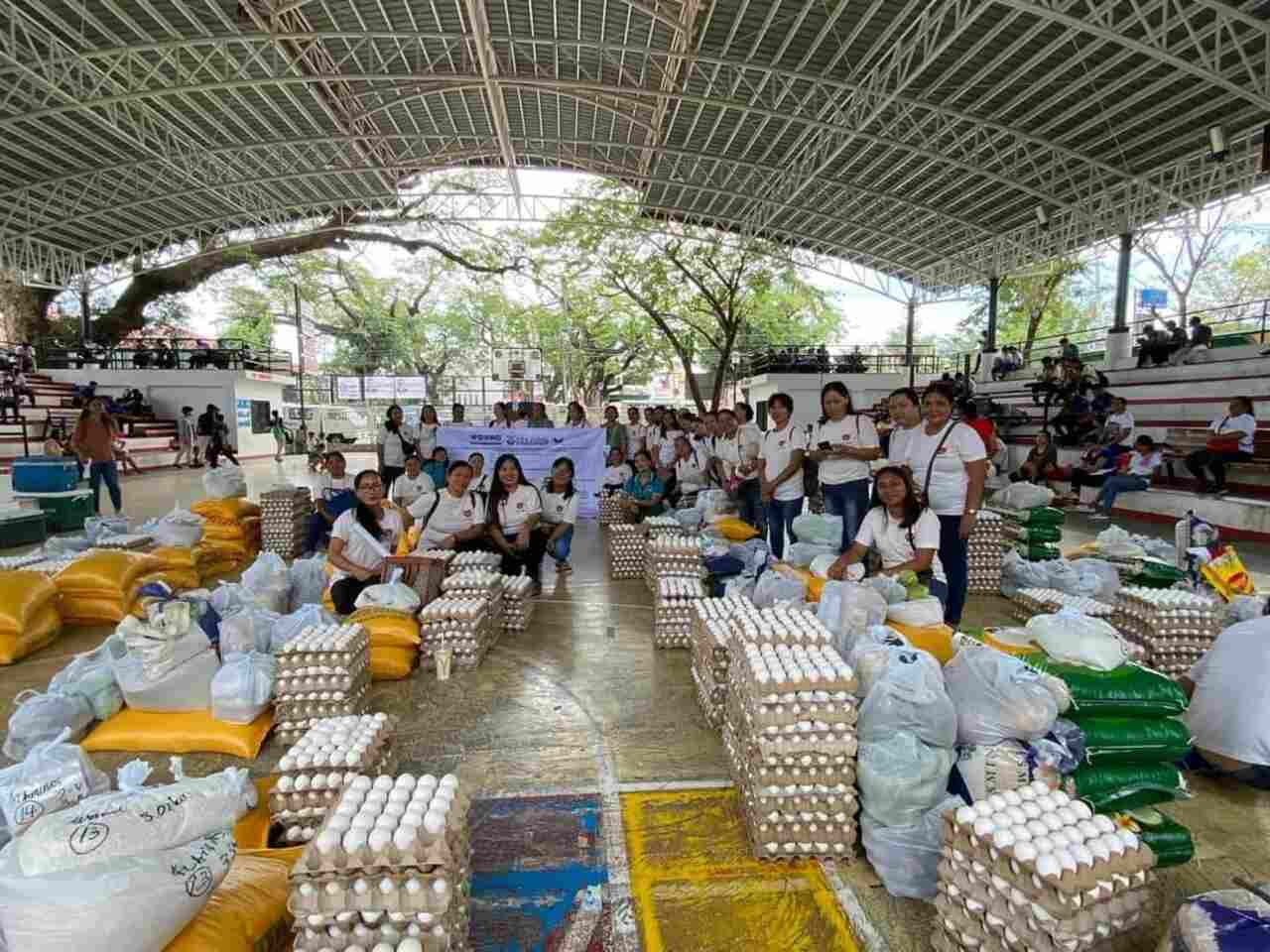The Department of Social Welfare and Development (DSWD) Supplementary Feeding Program (SFP) provides food in addition to regular meals to children enrolled in daycare centers. This is part of the DSWD’s contribution to the Early Childhood Care and Development (ECCD) program, in compliance with Republic Act 11037 (Masustansiyang Pagkain para sa Batang Pilipino Act), which mandates government intervention to ensure nutrition for Filipino children, aiming to address malnutrition and promote healthy development.
The SFP is also designed to improve and sustain the nutritional status of young children by offering hot meals or dry rations for 120 days. So, if you have children aged 2-5, and you are interested in applying for and availing the benefits of the SFP, here’s a detailed guide on how to apply and benefit from this DSWD assistance program.
SFP Overview
The DSWD’s SFP provides additional food to young children enrolled in Child Development Centers (CDCs) and Supervised Neighborhood Plays (SNPs) to support and supplement their regular meals so they can meet their nutritional needs. Introduced as part of the Early Childhood Care and Development (ECCD) program, SFP aims to improve the nutritional status of children aged 2-5, offering daily meals for 120 days. This program contributes to the government’s broader goal of reducing malnutrition and promoting healthy development among children through nutritious local foods.

Initially governed by Administrative Order No. 04, series of 2016, SFP has evolved with revised guidelines in 2019 to improve implementation and address issues in fund management. It directly aligns with Republic Act 11037, known as the “Masustansiyang Pagkain para sa Batang Pilipino Act,” which mandates sustainable nutrition interventions for Filipino children. The program uses indigenous and locally produced foods, providing one-third of the Recommended Energy and Nutrient Intake (RENI). Regular monitoring through monthly weighing assesses the children’s nutritional progress. It also supports families and local communities, targeting improved health outcomes in early childhood and reducing cases of undernutrition across the country.
Who Can Avail
The SFP is a program designed with specific targets in mind. These target beneficiaries include the following:
- Children in Supervised Neighborhood Play (2-4 years): These children are in informal play groups facilitated by local social workers, promoting early childhood development.
- Children in Child Development Centers (3-4 years): These are formal daycare setups where children receive early childhood education and developmental activities.
- 5-year-olds in CDCs (not in DepEd schools): Children of this age group receive early childhood care in CDCs if they have not yet started formal preschool education.
Eligibility
To qualify for the SFP, the interested party must satisfy the following eligibility criteria:
- Children must be enrolled in either:
- A Child Development Center (CDC) or
- A Supervised Neighborhood Play (SNP) group
- Parents or guardians should ensure their children are registered in these facilities to access the feeding support.
Documentary Requirements
To apply for and receive support from the SFP, the following documents must be submitted:
- Project Proposal endorsed by the Local Chief Executive (LCE)
- Masterlist of Beneficiaries (a complete list of eligible children) to identify and track recipients.
- Memorandum of Agreement (MOA) signed with all necessary stakeholders
- Baseline and Endline Nutritional Status Report to track the nutritional improvements of beneficiaries.
Selection Procedures
The selection of beneficiaries is a multi-step process organized as follows:
- Initial Identification: Local social welfare offices and daycare centers identify eligible children.
- Enrollment Verification: Verification of enrollment in CDCs or SNP groups.
- Nutritional Screening: Initial weighing and health assessment of children to determine current nutritional needs.
- Evaluation and Approval: The DSWD evaluates the submitted documents and approves the project for fund allocation.
- Final Selection: Based on the above, children meeting criteria are enrolled in the 120-day feeding cycle.
- Implementation: Upon approval, the feeding program begins under the supervision of the LGU or local DSWD representatives.
Application Process

For those who intend to apply as beneficiaries of the SFP, you will need to follow these steps:
Step 1. Inquire: Visit your local Child Development Center or social welfare office for information on the SFP.
Step 2. Gather Required Documents: Prepare the project proposal, beneficiary list, and other required documents.
Step 3. Submit Application: Submit all necessary paperwork to the Local Government Unit (LGU) or DSWD Field Office.
Step 4. Await Approval: After submission, the application undergoes review and approval by local authorities.
Step 5. Enroll Children: Once approved, children are officially enrolled in the feeding program.
Benefit Distribution
The SFP provides food through a combination of hot meals and dry rations. Parents and caregivers help manage the program, preparing meals based on a pre-arranged cycle menu. Meals incorporate local and indigenous ingredients, ensuring nutritious support for children. The meals, served during morning or afternoon breaks for a minimum of five and a maximum of seven days per week for 120 days, provide essential nutrients to support healthy growth.
Health Monitoring
As part of the SFP, the DSWD and those in-charge of the feeding program takes the time to monitor and record the health and progress of the beneficiaries. To do so, children are weighed at the beginning and at three-month intervals throughout the feeding cycle to monitor improvements in nutritional status. After 120 days, DSWD assesses each child’s health to ensure sustained improvements.
Important Reminders
For your reference, here are some important reminders you need to take note of:
- Program Duration: The program runs for 120 days, and children are weighed monthly to monitor progress.
- Parental Involvement: Parents and caregivers are essential in implementing the program, ensuring meals are prepared properly.
- Accountability: LGUs and the DSWD Field Offices must comply with reporting guidelines, including fund liquidation and program progress.
Video: DSWD Supplementary Feeding Program (SFP)
The SFP is a nationwide initiative led by the DSWD in an effort to promote good health and development among young children. This form of assistance is community-based, and only runs for 120 days. To better understand the DSWD SFP and to learn more about applying for the program, please watch this video from DSWD Region VII:
Summary
The DSWD SFP is a valuable initiative supporting young children’s health and development across the Philippines. Through proper application and collaboration with local authorities, eligible children can receive nutritional support to foster their growth and well-being. The parents can also access this program to support their children’s development.
